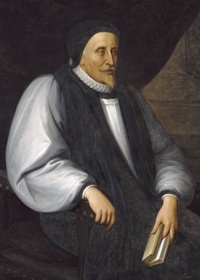
Justification of the Faith
The term 「apologetics」 comes from the Greek word, ἀπολογία, meaning 「defense」 or 「plea.」 Perhaps the most famous apologia of the ancient world was The Apology of Socrates, in which the great thinker defended himself against charges of corrupting the youth of Athens. Ever since, the word has been used to describe a sustained and sytematic defence of a particular position, either philosophical or theological in nature. “护教"一词来自希腊语,ἀπολογία,意思是 “辩护"或"申辩”。古代世界最有名的辩护书也许是《苏格拉底的申辩》,其中这位伟大的思想家为自己辩护,说自己败坏了雅典的青年。从那时起,这个词就被用来描述对某一特定立场的持续和理论性的辩护,无论是哲学还是神学的性质。
The Apostle Paul used the term in his trial before Festus and Agrippa (Acts 26.2), and in the speech that followed, provided an example for later theologians and evangelists. In the Greek East the Apostle’s mantle was taken up by such men as Ignatius of Antioch and Clement of Alexandria, while in the Latin West, one could point to Justin Martyr and Irenaeus of Lyon. The height of Christian apologetics in the ancient world came at the beginning of the 5th century when Augustine of Hippo composed his great De Civitate Dei Contra Paganos, commonly known as The City of God. 使徒保罗在非斯都和亚基帕面前受审时使用了这个词(使徒行传26:2),并在随后的演讲中为后来的神学家和传道人提供了一个范例。 在希腊东部,使徒的衣钵被安提阿的伊格那丢和亚历山大的革利免等人接过来,而在拉丁西部,人们可以指出殉道者游斯丁和里昂的爱任纽。古代世界基督教辩护学的高峰是在5世纪初,当时希波的奥古斯丁创作了伟大的「De Civitate Dei Contra Paganos」,通常被称为《上帝之城》。
In the Middle Ages, the focus of apologetics shifted from defending the Church against non-Christian systems of belief to defining doctrine Perhaps the most significant contribution in this area was made by Thomas Aquinas, who in his Summa Theologiae, laid the foundation for much subsequent Church teaching. During the Reformation, and for much of the modern era, apologetics meant defending one’s confessional position against that of other Christians, as one sees in the great debates between Protestants and Catholics or Calvinists and Arminians. 在中世纪,护教学的重点从捍卫教会免受非基督教信仰体系的影响转移到定义教义上。 也许在这个领域做出最重要贡献的是托马斯·阿奎那,他在《神学大全》(Summa Theologiae)中为后来的许多教会教学奠定了基础。 在宗教改革时期,以及现代的大部分时间里,护教意味着为自己的信仰立场辩护,反对其他基督徒的立场,正如人们在新教徒和天主教徒或加尔文信徒和阿米年信徒之间的大辩论中看到的那样。
While explaining differences in belief is still important to Christians today, with the rise of atheistic scientism and other modern systems of thought, apologetics has come full circle. Like their ancient counterparts, Christians today have had to turn their attention outward, and defend against those who seek to discredit the teachings of the Church. Some of the better known apologists of the early-twentieth century include G.K. Chesterton, C.S. Lewis, and Dorothy Sayers. Their work is continued today by such figures as William Lane Craig, Alvin Plantinga, and Peter Kreeft. 虽然解释信仰差异对今天的基督徒仍然很重要,但随着无神论科学主义和其他现代思想体系的兴起,护教学已经走过了一圈。与古代的基督徒一样,今天的基督徒不得不将注意力转向外部,抵御那些试图诋毁教会教义的人。二十世纪初一些比较知名的护教者包括G·K·切斯特顿(G. K. Chesterton)、C.S.路易斯(C.S.Lewis)和多萝西·塞耶斯 (Dorothy Sayers)。 他们的工作今天由威廉·莱恩·克雷格(William Lane Craig)、阿尔文·普兰丁格(Alvin Plantinga)和彼得·克里夫特(Peter Kreeft)等人继续。
The Anglican Position Though the Church of England sprang from a Reformation milieu, historically Anglicanism has tended to be defined in a positive fashion (i.e. not as a 「protest」 movement, but as a constituent branch of the Catholic and Apostolic Church). It owes much of this irenic character to such figures as Richard Hooker, whose Lawes of Ecclesiastical Politie continues to influence Anglican theology and thought. Much the same could be said about the Caroline Divines, the Cambridge neo-Platonsts, and the leaders of the Oxford movement in subsequent centuries.
At the dawn of the twentieth century, Anglicanism enjoyed an overall reputation as a comprehensive and learned approach to the faith, but like most of modern Christianity, it was deeply affected by the crisis in confidence that was the result of economic depression and two World Wars. By the middle of the twentieth century, much of the Anglican Communion began to embrace secular values that were contrary to the catholic faith. As a result, orthodox believers have had to place a renewed emphasis on apologetics.
In recent years, much fine work has been done, both in the pulpits of the ACC and in various publications and pamphlets. Many of these are available from the Anglican Parishes Association Book Publisher. More recently, one can point to traditionalist blogs such the ones linked in the Online Resources section of this site. Much of the what is contained in this section stems from efforts such as these.
Questions or comments on topics addressed in this section may be directed to the Archbishop’s Assistant for Ecumenical Relations, Father Matthew Kirby.